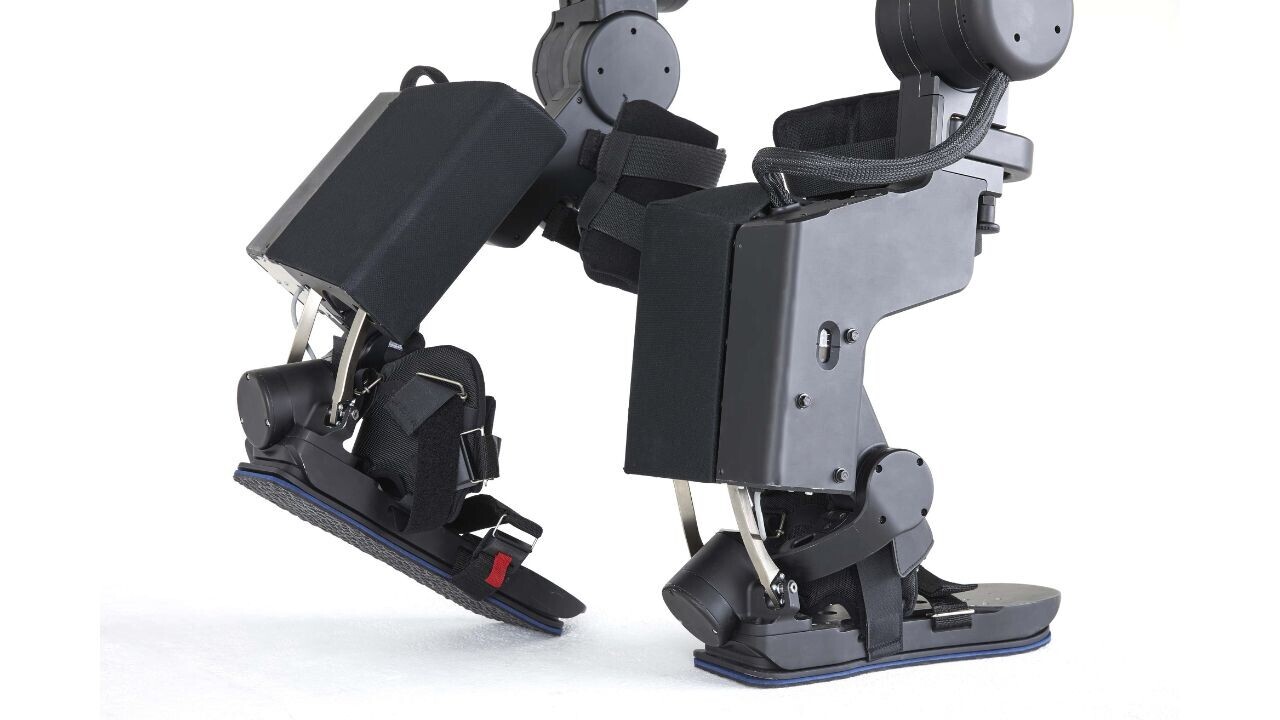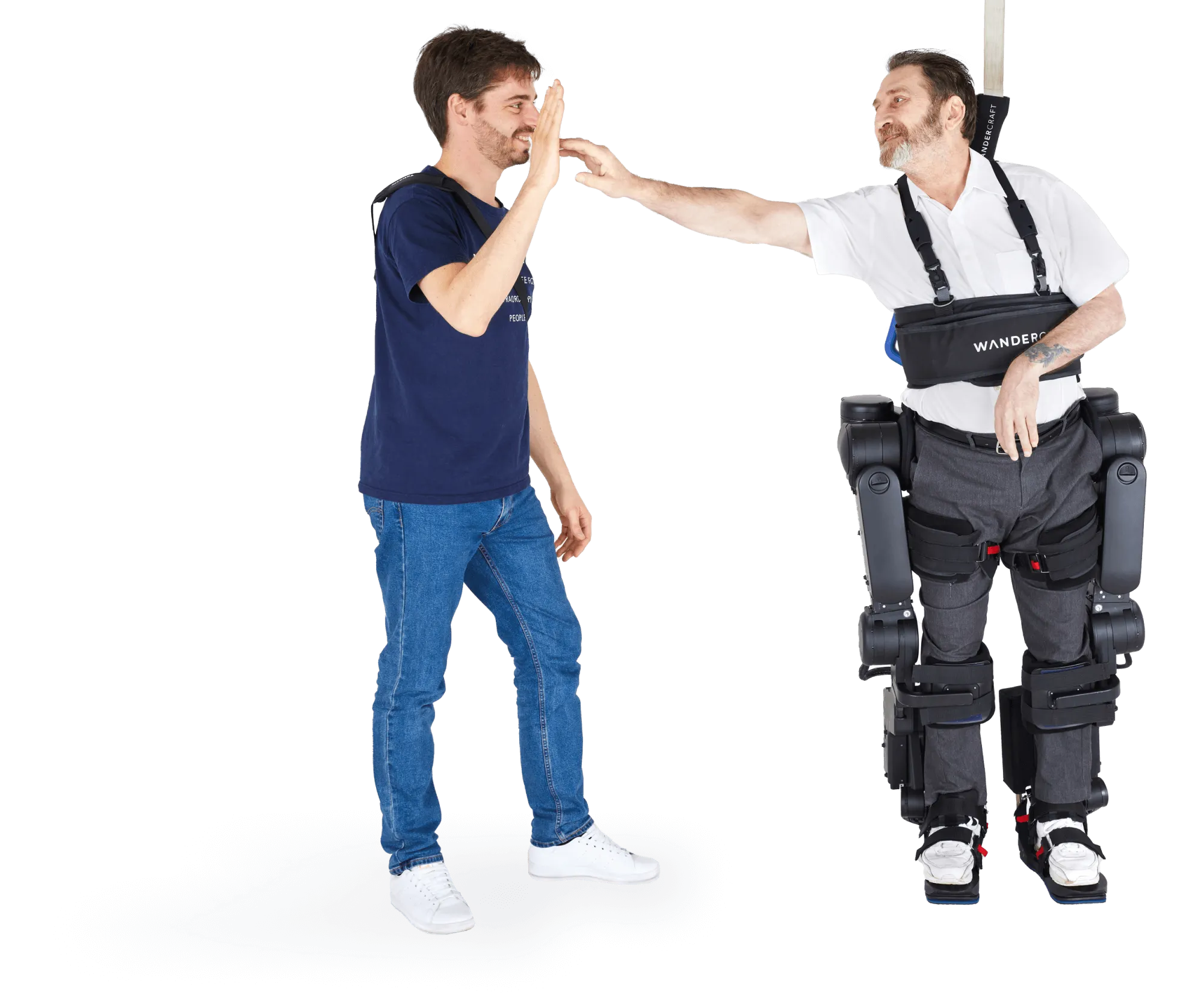Doesn't your competent hospital already have the best of these walking assistants?
Ask your doctor how this compares to all the other walking assist devices out there.
walking (567)
walking aids (1)
walking assist (6)
walking bike (1)
walking capacity (1)
walking endurance (1)
walking frame (1)
Walking o’Clock (1)
walking pace (3)
walking pattern (1)
walking resistance (1)
walking speed (7)
World’s first self-stabilising walking exoskeleton enters stroke rehab trial
Atalante X is designed to support people with mobility issues

The world’s first self-stabilising walking exoskeleton, Atlante X, has entered a rehabilitation trial in Germany.
The exoskeleton will be provided to patients with hemiparesis, an after-effect of stroke that causes muscle weakness on one side of the body. Atalante X’s efficacy will be compared with standard rehabilitation methods.
The trial, named EarlyExo, will take place at two renowned neurorehabilitation clinics: the Vivantes Klinikum Spandau in Berlin and Schön Klinik Bad Aibling Harthausen near Munich. Both clinics will this month begin recruiting a total of 66 patients.
“Recovery from a stroke and other acute neurological conditions is complex and can take patients, treating therapists, physicians, and carers significant time, effort, and resources,” Professor Jörg Wissel, a neurologist at Vivantes Klinikum Spandau, said in a statement.
“We look forward to evaluating the potential impact that Atalante X can add in helping patients recover walking ability, trunk stability, balance, weight transfer, and limb function.”

Atalante X was developed by Wandercraft, a healthtech firm based in Paris. Founded in 2012, the company wants to build a better solution for people deprived of walking than a wheelchair. Its opening proposal, Atalante, was launched in 2019. Wandercraft believes it was the first bipedal walking robot to become a full commercial product.
Atalante X is the second iteration of the tool. Using a proprietary self-balancing feature, the exoskeleton provides hands-free and multi-directional locomotion. Therapists can use the device to personalise task-orientated treatments for each patient’s needs.
Regulators have shown growing faith in the system. In January, the US Food and Drug Administration (FDA) cleared Atalante for use in stroke rehabilitation. Investors have also provided strong support, ploughing a total of around $67mn (€63mn) into Wandercraft.
The trial in Germany provides another opportunity to develop the product.
“This launch in one of Europe’s largest markets reinforces the position of Wandercraft as a global leader in the field of self-stabilizing, assisted locomotion,” said Matthieu Masselin, CEO of Wandercraft.
“It helps provide us with the opportunity to extend the reach of our assistive technology to greater patient populations for treatment and rehabilitation.”
The German launch expands Wandercraft’s strong commercial presence in Europe, which also includes footholds in France and Spain. The company is now targeting the biggest market of them all: the USA.

No comments:
Post a Comment